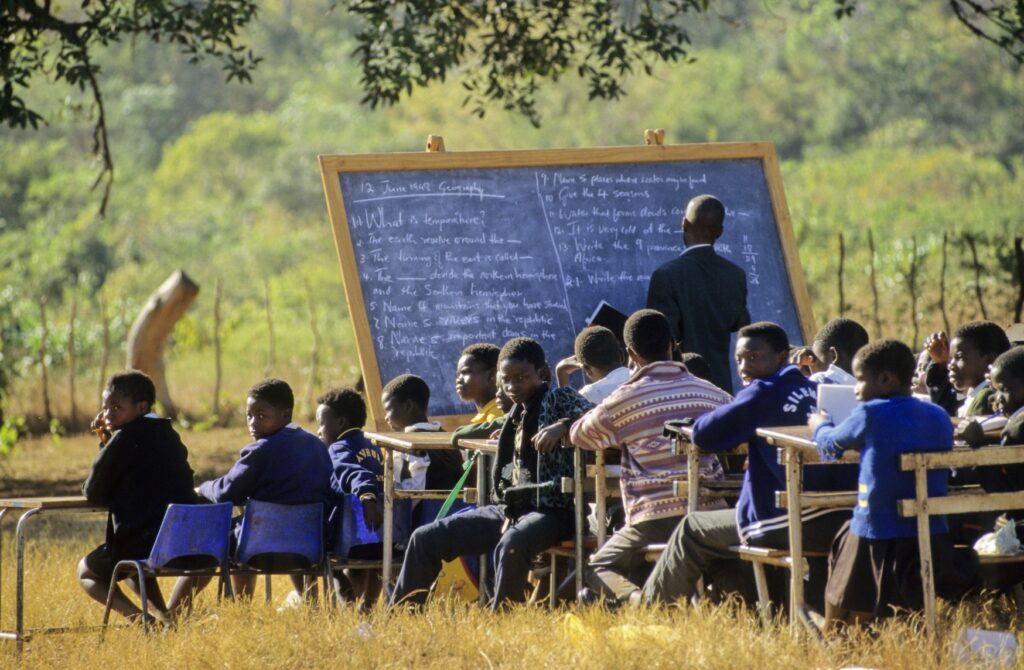
Africa, a continent of incredible diversity and potential, is grappling with an educational crisis that demands urgent attention. While progress has been made, significant challenges still plague the educational landscape. In this blog post, we shed light on the pressing issues facing education in Africa, their far-reaching consequences, and potential strategies for improvement.
Access to Quality Education
Challenge: Unequal access to quality education is one of the most glaring issues. Many African countries struggle to provide education for all, leading to disparities in enrollment rates, particularly among marginalized communities.
Impact: Limited access perpetuates cycles of poverty, restricts economic growth, and stifles social mobility. The lack of educational opportunities hampers the development of a skilled workforce and impedes progress towards achieving the United Nations Sustainable Development Goals.
Solution: Governments, NGOs, and international organizations can collaborate to increase funding for education, prioritize teacher training, and establish policies that ensure equal access to education for all children, regardless of their socio-economic backgrounds.
Inadequate Infrastructure and Resources
Challenge: Insufficient infrastructure, outdated materials, and overcrowded classrooms are common across the continent. Lack of proper facilities affects the learning environment and hampers effective teaching and learning.
Impact: Students’ learning experiences are compromised, inhibiting their cognitive development. Without access to modern resources, students are ill-equipped to meet the demands of a rapidly changing world.
Solution: Investment in infrastructure development, provision of up-to-date learning materials, and integration of technology can create conducive learning environments that foster innovation and critical thinking.
Teacher Shortages and Quality
Challenge: A shortage of qualified teachers plagues many African countries. Additionally, inadequate training and low teacher salaries contribute to a lack of motivated and skilled educators.
Impact: Quality of instruction suffers, leading to poor learning outcomes and reduced student engagement. The lack of effective teachers limits students’ potential and hampers the overall educational system.
Solution: Governments should prioritize teacher training, increase incentives for educators, and establish programs to attract and retain talented individuals in the teaching profession.
Gender Disparities
Challenge: Gender inequalities persist in education across Africa, with girls often facing barriers to enrollment due to cultural norms, early marriages, and limited access to sanitation facilities.
Impact: This perpetuates a cycle of limited opportunities for women, contributing to broader societal inequalities. A lack of educated women hampers economic growth and sustainable development.
Solution: Creating awareness around the importance of girls' education, implementing policies to prevent early marriages, and providing safe and inclusive learning environments can help bridge the gender gap in education.
Lack of Relevant Curriculum
Challenge: Many African education systems use outdated curricula that don’t align with the needs of a rapidly changing job market.
Impact: Graduates are ill-equipped to tackle real-world challenges, and unemployment rates remain high due to a mismatch between skills acquired and skills demanded by the job market.
Solution: Developing curricula that emphasize critical thinking, problem-solving, and practical skills relevant to the current and future job markets can better prepare students for success.
Conclusion
Addressing the educational crisis in Africa requires concerted efforts from governments, international organizations, communities, and individuals. By acknowledging the challenges and actively pursuing comprehensive solutions, Africa can harness the potential of its youth, break the cycle of poverty, and pave the way for sustainable development and prosperity for all. It’s time to invest in Africa’s future by investing in its education system.

